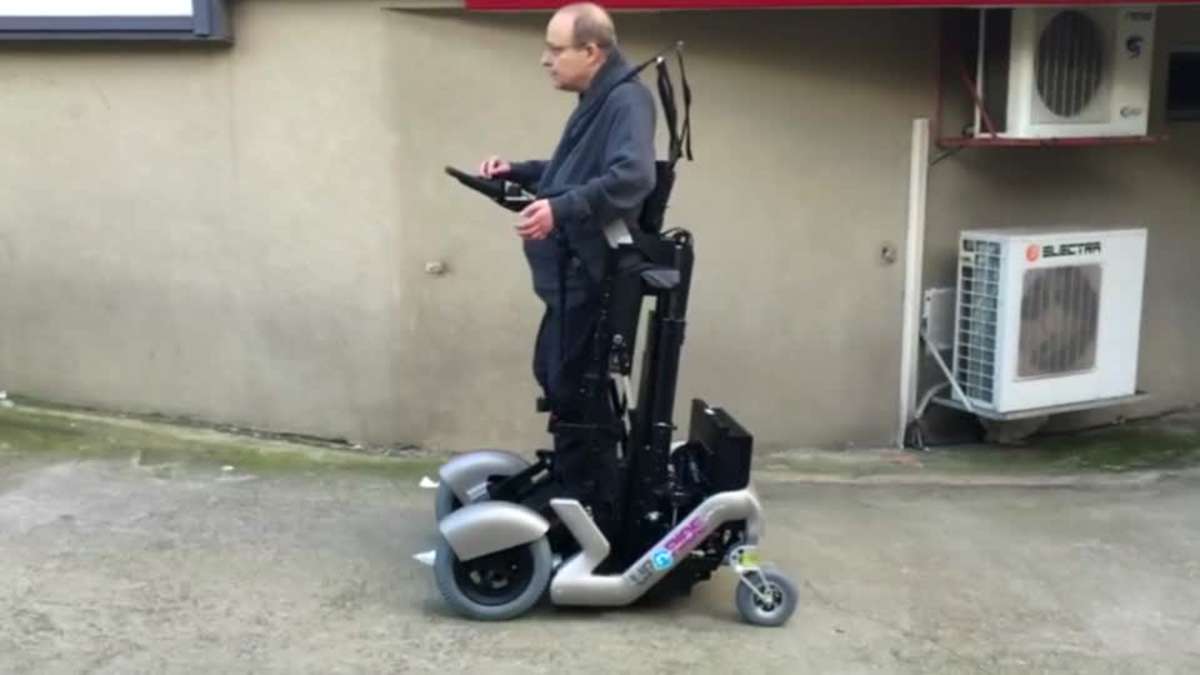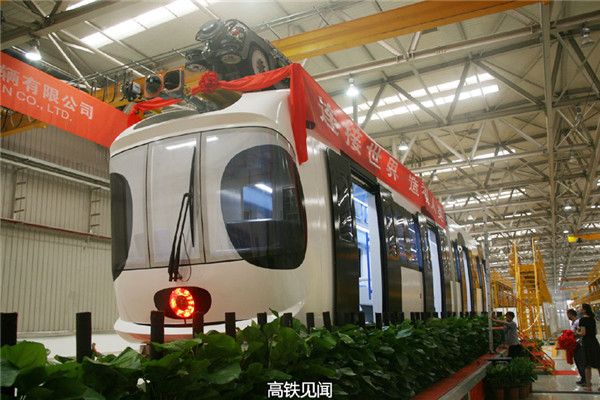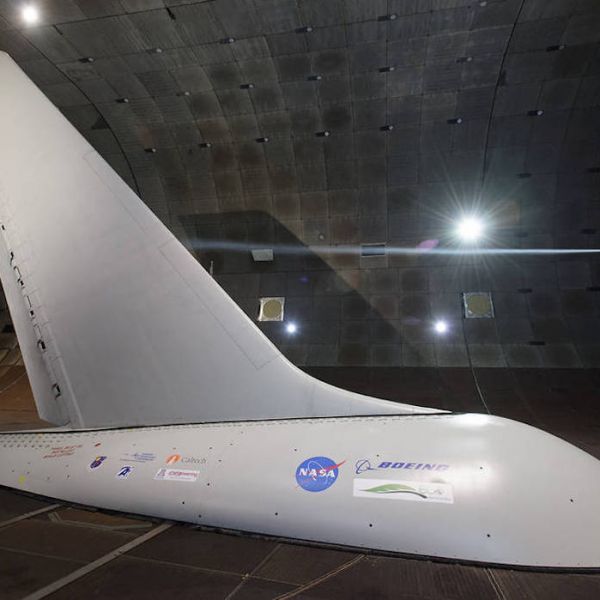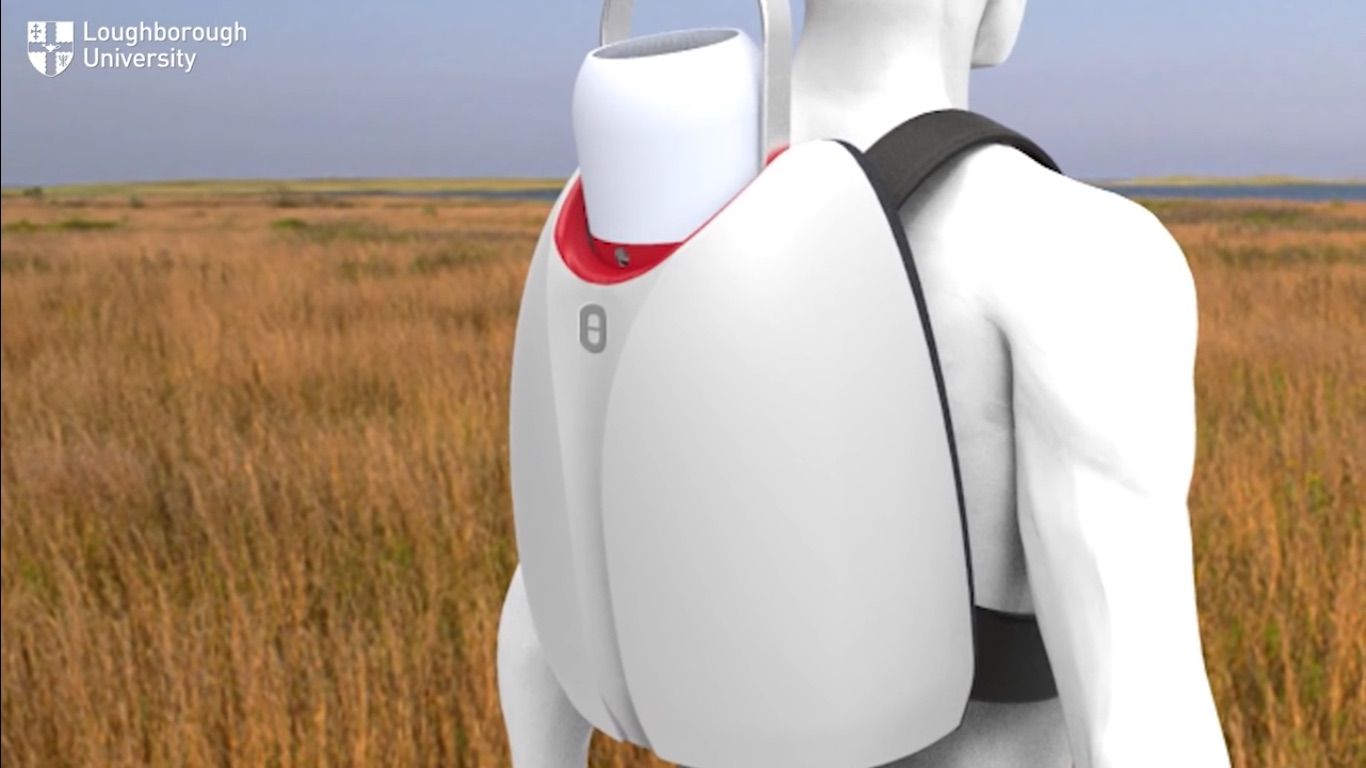Self-stabilising wheelchair from Israeli technology start-up lets you cruise through town while standing. Matthew Stock reports.
Nearly 20 years ago Amit Goffer suffered an accident that confined him to a wheelchair. Increasingly dissatisfied with what was on offer, the electrical engineer built this — the UPnRIDE. It’s a robotic exoskeleton that helps people paralysed from the waist down to stand tall in the outside world. (SOUNDBITE) (English) CHIEF TECHNICAL OFFICER AND FOUNDER OF UPNRIDE, DOCTOR AMIT GOFFER SAYING: “The UPnRIDE device, the whole idea is that you can use it outdoors as well as indoors and in a safe manner because they, it automatically balances you and stablizes you… The concept is new because you don’t see any disabled person rolling outside in a standing position so this is a breakthrough in the industry of wheelchair manufacturing, I’m sure that others will follow.” It goes from seated to standing at the push of a button. A gyroscope — similar to that in a two-wheeled Segway — along with self-stabilising software helps manoeuvre upright over uneven urban terrain.





